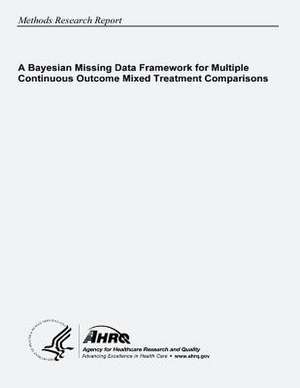A Bayesian Missing Data Framework for Multiple Continuous Outcome Mixed Treatment Comparisons
Autor U. S. Department of Heal Human Services, Agency for Healthcare Resea And Qualityen Limba Engleză Paperback
Preț: 108.55 lei
Nou
Puncte Express: 163
Preț estimativ în valută:
20.77€ • 21.74$ • 17.19£
20.77€ • 21.74$ • 17.19£
Carte disponibilă
Livrare economică 15-29 martie
Preluare comenzi: 021 569.72.76
Specificații
ISBN-13: 9781483908120
ISBN-10: 1483908127
Pagini: 64
Dimensiuni: 216 x 280 x 3 mm
Greutate: 0.17 kg
Editura: CREATESPACE
ISBN-10: 1483908127
Pagini: 64
Dimensiuni: 216 x 280 x 3 mm
Greutate: 0.17 kg
Editura: CREATESPACE
